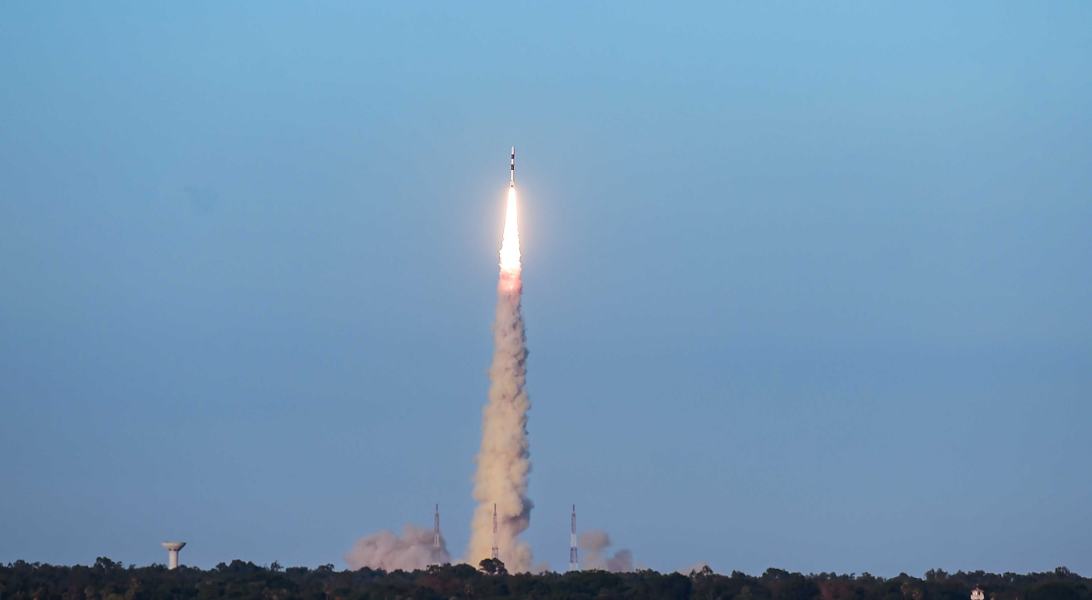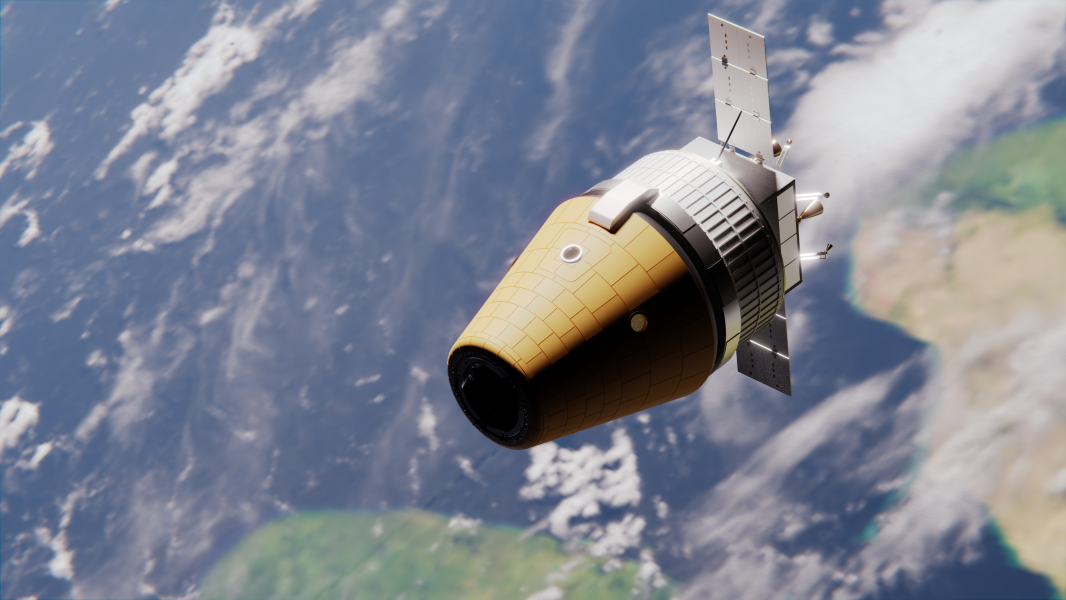
ISROs PSLV-C53 carrying DS-EO satellite along with two other co-passenger satellites successfully launched from the Sathish Dhawan Space Centre, in Sriharikota, Thursday, June 30, 2022. A PTI Photo
SRIHARIKOTA, AP (PTI): In its second successful mission within a week, ISRO has launched three foreign satellites in precise orbit from the spaceport here.
PSLV-C53 is the second dedicated commercial mission of NewSpace India Limited (NSIL), the commercial arm of ISRO. It had on June 23 launched GSAT-24 in its first "demand-driven" communication satellite mission post space sector reforms, leasing the entire capacity on board to Direct-to-Home (DTH) service provider Tata Play.
On Thursday, the four-stage, 44.4 metre tall PSLV-C53 that blasted off from the second launch pad of Satish Dhawan Space Centre and placed the three Singapore satellites--DS-EO, NeuSAR and SCOOB-1 in intended orbit.
ISRO Chairman S Somanath confirmed that the mission achieved its intended objective, saying the rocket placed the three customer satellites "in the precise orbit of 570 km with a 10 degree inclination" and congratulated NSIL for accomplishing "yet another major mission this month itself," the earlier one being the GSAT launch last week.
"With today's mission, all these three satellites are placed in the right orbit," he said.
Mission Director SR Biju described the launch as "wonderful."
Earlier, the launch vehicle lifted off at 6.02 PM at the end of the 25-hour countdown.
This is the 55th mission of PSLV, often described as ISRO's trusted workhorse and the 15th one using the PSLV-Core Alone variant. It also marks the 16th PSLV launch from the second launch pad.
The mission, which is designed to orbit DS-EO satellite along with two other co-passenger satellites from ST Electronics, Singapore, proposes to demonstrate the utilisation of the spent upper stage of the launch vehicle as a stabilised platform for scientific payloads subsequent to the separation of the satellites, the Indian Space Research Organisation (ISRO) said.
DS-EO is a 365 kg satellite while NeuSAR weighs 155 kg. Both belong to Singapore and are built by Starec Initiative of the Republic of Korea, while the third satellite is a 2.8 kg SCOOB-1 of Nanyang Technological University (NTU), Singapore.
PSLV Orbital Experimental Module (POEM) DS-EO carries an Electro-Optic, multi-spectral payload that will provide full colour images for land classification, and serving Humanitarian Assistance and Disaster Relief needs. NeuSAR is Singapore's first small commercial satellite carrying aR payload, which is capable of providing images in day and night and under all weather conditions.
SCOOB-I is the first in the Student Satellite Series (S3-I), a hands-on student training programme from the Satellite Research Centre (SaRC) at Singapore's NTU School of Electrical and Electronic Engineering.
The POEM activity performs in-orbit scientific experiments using the spent PS4 stage as an orbital platform, ISRO said. It is the first time that the PS4 stage would orbit the earth as a stabilised platform.
Attitude stabilisation is achieved using a dedicated NGC system, it said. POEM derives the power from the solar panels mounted around the PS4 tank and a Li Ion battery.
POEM carries six payloads including two from Indian Space Start-ups M/s Digantara and M/s Dhruva Space, enabled though IN-SPACe and NSIL.
 Previous Article
Previous Article Next Article
Next Article












The Indian Air Force, in its flight trials evaluation report submitted before the Defence Ministry l..
view articleAn insight into the Medium Multi-Role Combat Aircraft competition...
view articleSky enthusiasts can now spot the International Space Station (ISS) commanded by Indian-American astr..
view article